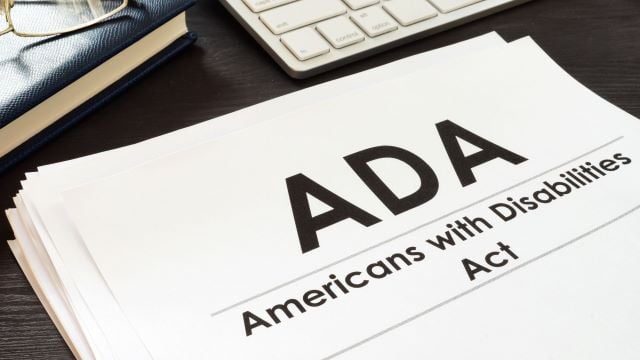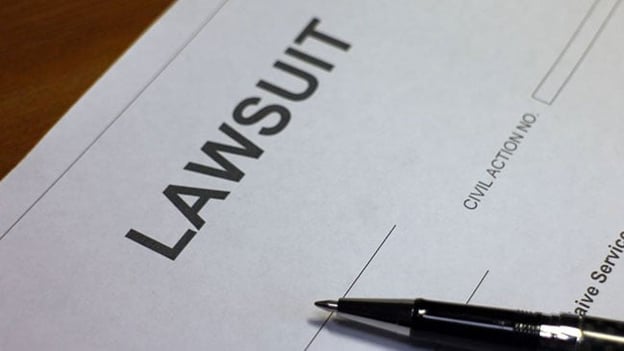What is the ADA?
The Americans with Disabilities Act (ADA) lays out basic requirements for businesses and other entities to ensure that all Americans, regardless of their disability, have access to all public facilities, buildings, and amenities.
It was signed into law by George HW Bush on July 26, 1990. The ADA law requires fair access to all individuals with disabilities to ensure that they are able to fairly access public services, including employment opportunities, state/local government offices/services, transportation, and telecommunication services.
What is the Purpose of the ADA?
It's important to understand the purpose of the ADA. The ADA is generally in place so that people with a variety of disabilities can use and enjoy all public amenities.
These ADA rules can apply to a variety of different amenities, from water fountains to restrooms in a public space to access to public transportation like buses, trains, or planes.
How can the ADA apply to a Community Association?
Generally, the facilities inside an HOA are not open to the public; therefore, the ADA rules do not apply to them. Therefore, these facilities are not subject to ADA guidelines and requirements. Most HOAs are considered private entities, and the ADA does not apply.
However, there are times that the ADA will apply to a community association. These instances only come when the facilities are open to the public.
Some of these circumstances when an association would likely be required to accommodate individuals who fall under the ADA guidelines/requirements are as follows:
- rental/welcome offices maintained by the association
- any facilities that the association leases out for public use, such as a clubhouse
- public events that are held in the association’s common areas (i.e. tennis meets on the HOA tennis courts or a swim meet in the HOA pool)
- Public sidewalks that are owned and/or maintained by the association
What About Individual Residences within the HOA?
The ADA requires residents with disabilities to be allowed to adapt to their homes to meet their personal needs. For example, a resident who has paraplegia must be allowed to install a chairlift in their home so they can get up the stairs in a townhome they are renting or a wheelchair ramp.
Another example would be that a service dog must be allowed to be kept in a pet-free HOA if they are supporting someone with a disability physically or emotionally (depending on the laws in your town, city, and state).
Other accommodations covered under the ADA would include installing ramps, modifying screening, or widening sidewalks/driveways to meet the needs of the person living there.
Consider the Fair Housing Act
Although the ADA infrequently applies to associations, you should also consider the Fair Housing Act (FHA).
The FHA protects residents or potential residents from discriminatory housing practices in the sale, rental, and financing of dwellings based on race, color, national origin, religion, sex, physical or mental disability, or familial status.
Many claims of discrimination that reference ADA may, in fact, be in violation of the FHA.
All residents and prospective residents must be treated fairly and equally, regardless of their ability or disability.
Reasonable accommodations must be made in order to accommodate that person's housing if they meet the qualifications to live in that association.
Additionally, Associations do not have a right to determine whether an individual's disability is "serious" enough to warrant following ADA guidelines or not.
Final Thoughts
While associations are not usually subject to the ADA rules, there are instances when the associations need to be aware of discrimination laws and may need to get legal advice on the best way to proceed with a request for accommodations or discrimination claim.
If a resident or potential resident makes a request for accommodations, the association should try to comply and seek legal guidance if they cannot make those accommodations as requested.
The association should always seek legal advice if a discrimination accusation is made.
Both the ADA and FHA are designed to make sure that our communities fit the needs of all residents, both in and out of associations.





